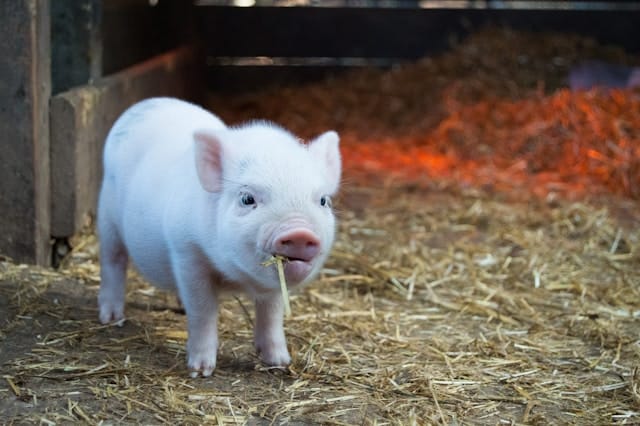What Are the Specific Nutritional Requirements for a Pregnant Guinea Pig?

As proud owners of guinea pigs, ensuring their health and happiness is one of your critical responsibilities. This becomes particularly important when your guinea pig is pregnant, requiring an extra level of care and attention. The quality of nutrition you provide to your pregnant guinea pig can significantly influence not just the health and well-being of the mother, but also the unborn pups.
To help you navigate this crucial period, we have put together a detailed guide, focusing on the specific nutritional requirements of pregnant guinea pigs.
Cela peut vous intéresser : How to Care for an Orphaned Bunny: A Comprehensive Guide for Emergency Nutrition and Warmth?
Understanding the Importance of Nutrition in Pregnancy
Before we delve into the specifics, it is crucial to understand the pivotal role nutrition plays during pregnancy in guinea pigs.
Guinea pigs, like humans, are unable to manufacture their own vitamin C. This leads to a dependence on their diet to meet this essential requirement. During pregnancy, the demand for certain nutrients such as proteins, vitamins, and minerals increases significantly. This is due to the need to support the growth and development of the pups, alongside maintaining the health of the mother.
A voir aussi : What Are the Best Exercise Routines for a Dog Breed Prone to Elbow Dysplasia?
A nutritionally balanced diet will ensure that the pregnant guinea pig stays healthy, reduces the risk of complications during pregnancy and delivery, and provides the pups with the necessary nutrients for robust growth and development.
Essential Nutrients for a Pregnant Guinea Pig
There are several nutrients that a pregnant guinea pig needs in increased amounts. Ensuring your guinea pig’s diet is rich in these can lead to a successful pregnancy and healthy offspring.
Protein
Protein is the building block of the body and is essential for the growth of new cells and tissues. A pregnant guinea pig requires higher amounts of protein to support the development of the pups.
These increased protein requirements can be met through a diet that includes high-quality guinea pig pellets, which are typically rich in protein. Fresh vegetables like broccoli and kale also contribute valuable amounts of protein.
Vitamin C
As mentioned earlier, guinea pigs cannot produce their own vitamin C, making it a necessary supplement in their diet. During pregnancy, the requirement for vitamin C increases even further.
Citrus fruits or vitamin C-rich vegetables like bell peppers and strawberries are an excellent natural source of vitamin C. However, be wary of overfeeding, as it could lead to diarrhoea.
Calcium and Phosphorous
Calcium and phosphorous play crucial roles in the formation of the pups’ bones and teeth. Pregnant guinea pigs consequently require a diet high in these minerals.
High-calcium foods include leafy green vegetables and high-quality guinea pig pellets. Avoid feeding your guinea pig a diet overly rich in calcium as it could lead to the formation of bladder stones.
Feeding Your Pregnant Guinea Pig
Once you’ve understood the key nutrients needed, the next step is to incorporate them into a balanced and comprehensive diet.
During pregnancy, your guinea pig’s diet should consist of high-quality guinea pig pellets, fresh fruits and vegetables, and unlimited access to timothy hay. The pellets should comprise the majority of their diet, supplemented by the fruits and vegetables to provide the necessary vitamins and minerals.
Remember to feed your guinea pig several times throughout the day rather than providing all the food at once. This helps them maintain a steady level of nutrients in their body.
Spotting Nutritional Deficiencies in Your Pregnant Guinea Pig
Finally, it’s essential to monitor your guinea pig closely during her pregnancy to spot any signs of nutritional deficiencies.
Common signs of deficiencies include loss of appetite, weight loss, lethargy, and a dull coat. If you notice these symptoms in your guinea pig, it’s crucial to consult a vet immediately. They may recommend dietary changes or supplements to address the deficiencies.
Remember, a nutritionally balanced diet is critical for the health of your pregnant guinea pig and her unborn pups. By ensuring that she gets the right nutrients in the right amounts, you can look forward to welcoming a litter of healthy, vibrant pups into your home.
The Role of Hydration in Pregnancy
It’s important to remember, when feeding your pregnant guinea pig, that hydration is equally as important as nutrition. Water functions as a solvent for the nutrients, aids digestion, and helps maintain a stable body temperature in guinea pigs.
During pregnancy, guinea pigs need an increased amount of water. This is mainly because they have a higher metabolic rate, a bigger body mass due to the growing pups, and also due to the increased demand for nutrients. Dehydration can lead to severe complications like constipation and heatstroke, and can also interfere with the absorption and transportation of the necessary nutrients.
Guinea pigs should always have access to fresh, clean water through a sipper bottle. It’s best to change the water daily to prevent the growth of bacteria or algae. Avoid using water bowls as they can easily tip over or become contaminated with food or feces.
You can also supplement your guinea pigs’ water intake with water-rich fruits and vegetables like cucumber, bell peppers, and melon. However, these should be provided in moderation as they can also lead to diarrhea if overfed.
Tips for Making Dietary Changes
Introducing dietary changes to your pregnant guinea pig should be a gradual process. A sudden change in diet can lead to digestive issues.
Start by introducing the new foods in small quantities, gradually increasing the amount over a week or two. This gives your guinea pig’s digestive system time to adjust to the new diet.
Avoid feeding your pregnant guinea pig any foods that are high in sugar or fat. These include fruits like bananas and grapes, and vegetables like potatoes and corn. Such foods can lead to obesity and related health problems, which can complicate the pregnancy.
It’s also important to avoid feeding your pregnant guinea pig any human foods, especially processed foods. These can be high in salt and preservatives, which are harmful to guinea pigs.
Conclusion
As a guinea pig owner, the health of your pregnant guinea pig and her unborn pups are in your hands. By understanding the specific nutritional requirements of pregnant guinea pigs and providing them with a balanced and comprehensive diet, you are setting the stage for a successful pregnancy and the birth of healthy pups.
Remember to monitor your guinea pig closely during her pregnancy for any signs of nutritional deficiencies or health complications. Consult a vet immediately if you notice any changes in her behavior or appearance.
In the end, it’s all about providing your pregnant guinea pig with the love, care, and attention she needs during this crucial period. With the right diet and care, you can look forward to the arrival of your new little ones, knowing you’ve done everything possible to ensure their health and well-being.
